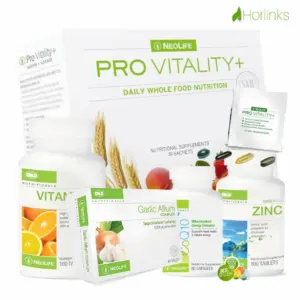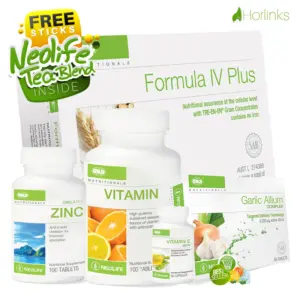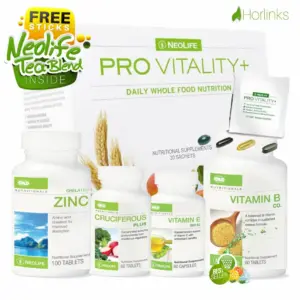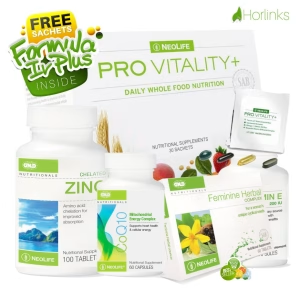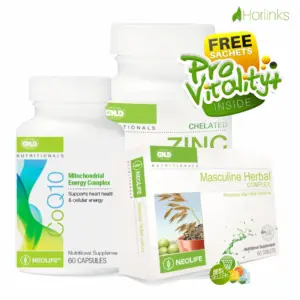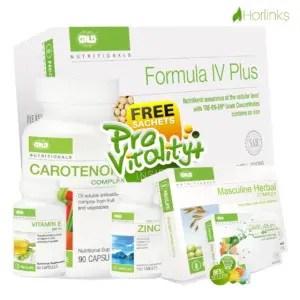Quality nutrition children can grow on – what every parent needs to know: The period between 2 and 18 years is known as the developmental years of life. During this period, every child undergoes a tremendous amount of growth and development, physically as well as cognitively. Due to the amount of growth and development occurring at this stage in life, it is critical that your kids receive the nutrients they’ll need to build a strong body and mind. Good nutrition and good health go hand-in-hand. Not only will this ensure they reach their physical potential, but also their intellectual, emotional, behavioural, and social goals as well.
Good Nutrition And Good Health Go Hand In Hand
Unfortunately, many children are not getting what they need from their diet. A study conducted by researchers in Australia shows that children aged 9-10 years old are receiving almost 50% of their daily energy requirements from junk foods that are high in fat, salt and sugar and consuming more than 150 grams of sugar daily (equivalent to about 38 teaspoons of sugar). In addition, 91% of children ate less than their recommended daily servings of vegetables. In the United States, many children’s intakes of added sugars, saturated and trans fatty acids exceeds recommendations in the Dietary Guidelines for Americans. At the same time, they fail to meet the recommended levels of whole grains, vegetables, dairy foods, and nutrients of concern.
The Guidelines also outline a fruit and vegetable intake target of 7-9 servings for children older than six and teens, but a report published by the US Centers for Disease Control and Prevention(CDC), found that adolescents only consumed an average of about 2.3 servings of fruits and vegetables daily, only 25-33% of the recommended amount. In South Africa there appears to be a general lack of variety in the diet, borne out by the high prevalence of certain micronutrient deficiencies.
Amongst many South African children there is a widespread lack of adequate vitamin A and iron intake and approximately 45% of children have a low zinc status. This is worrying and an ongoing concern. While our children’s nutrition is based on the same principles as nutrition for adults, children need different amounts of specific nutrients during the developmental years. What are the top nutrients of concern for children? Let’s take a look at what the latest research in modern day science shows us all herein.
The ABC’s of Staying Healthy
According to USDA, children ages 4-18 years need between 1 to 2 cups of fruits and 1 to 3 cups of vegetables daily, equivalent to about 7-9 servings depending on the particular types of fruits and vegetables. In South Africa, most people do not consume adequate amounts of fruits and vegetables on a daily basis. In fact, intake of fruit and vegetables is below recommendations for all ages. Fruits and vegetables are important sources of vitamins and minerals. However, they also provide antioxidants that are critical for immunity and protection from oxidative stress. Active children, like those who play sports, have high metabolic activity, making antioxidants even more important for protecting cells from oxidative damage.
Also, since children are often exposed to germs at school and in the playground, providing them with vital nutrients to support immunity may help reduce the risk of becoming sick. Supplementing with fat-soluble anti-oxidants such as found in carotenoids, vitamin A, D, and E and water-soluble antioxidants like vitamin C and polyphenols, including flavonoids, may all play a critical role in your child’s health and immunity and can form an important part of their diet.
- Some of important vitamins made from whole-food based nutrients, which includes Carotenoids to support immunity, Tre-en-en for cellular energy level, and ingredients that may also help in support for brain development.
Happy, Healthy & Well Behaved?
It is established that omega-3 fatty acids are a crucial component of cognitive development in children. They are used up for building the membranes of new neurons, which is critical for a developing nervous system. DHA in particular makes up about 15% of all fatty acids in the frontal cortex of the brain, and is involved in messaging and signalling processes. But did you know that omega-3s can affect behaviour as well?
A recent report published in the Federation of American Societies for Experimental Biology Journal in June 2015, describes how omega-3 fatty acids can affect levels of serotonin, which is a hormone that helps to regulate cognitive functions, mood, decision-making processes, social behaviour and impulsive behaviour. EPA helps increase serotonin levels and DHA helps make serotonin receptors more accessible to serotonin, both of which aid in improving the positive effects of serotonin in the brain.
In addition, a recent study suggests omega-3 supplementation could play a role in learning ability. In the study, researchers provided a daily 600mg omega-3 supplement to children aged 7-9 years. Among those whose reading skills were in the bottom 20th percentile, literacy improved over the course of the 4 month study, compared to the control group taking daily placebo. While more research is needed to confirm the findings, the study result are promising and highlights the importance of all fatty acids in the frontal cortex of the brain, and is involved in messaging and signalling processes of adequate intakes of omega-3s during the developmental years.
Currently, there are no formal guidelines for the amount of omega-3 fatty acids that children should consume daily. However, USDA recommends 85-225g of seafoods, including fatty fish (like salmon, tuna, and mackerel) rich in omega-3s, per week depending on the child’s age. Meeting these recommendations for intakes of omega-3 rich fish per week will equate to approximately 250-500mg of omega-3 fatty acids per day. Despite the importance of omega-3 fatty acids for children, few are getting enough servings of fish in their daily diet.
A study in South Africa found that children in general are eating higher amounts of saturated fats and insufficient amounts of poly-unsaturated fats, particularly omega-3 rich sources. This is true even in coastal communities who have greater access to fish potentially rich in important omega-3 fats. This points to an obvious deficiency that may undermine our children’s health and development.
For the Love of Protein
We often equate protein intake with muscle. However, most people are surprised to hear that protein does more than just build muscle. The protein we eat, or more explicitly the amino acids these proteins provide, is also used to make enzymes, skin, hair and bones. For adults as well as growing kids, it is important to get enough protein in the diet along with the right balance of nutrients and energy.
Balancing protein intake with energy from carbohydrates and healthy fats ensures that the protein we eat is made available for muscle maintenance, new cell growth and tissue repair rather than burned for energy. A balanced and varied diet also ensures that nutrients are available to help convert these amino acids into the structural components and muscles in our body.
Kids in general require more protein per kilogram of body weight than adults to support their faster growth rate. Therefore, it’s important to make sure they get the right amount of protein each day. Too little, and their body will break down its muscles to supply the body with the amino acids it needs. This can be readily gotten from our Omega-3 Salmon Oil Plus or Smart 8 – promotes heart health, brain function, healthy flexible joints, and healthy eyes! Big kids can also try our clinically proven Salmon Oil Plus to support heart and cardiovascular health, promote youthful brain function, healthy flexible joints and healthy eyes. The product delivers the world’s finest fish oil, complete with all 8 omega-3s and guaranteed purity! DHA in particular makes up about 15%.
Start Smart With Breakfast
Breakfast is the most important meal of the day, but unfortunately it is also one of the most commonly skipped meals for kids and teens. This is not only a poor habit, but can be detrimental to their growth, development, school performance, and ability to manage their weight. Children who skip breakfast tend to consume fewer nutrients than those who eat breakfast, specifically vitamin A and C, riboflavin, calcium, zinc, and iron.
Studies show that children who do not eat breakfast typically have poorer performance in the classroom and are at increased risk for being overweight. It is difficult to stay focused when blood glucose levels are low, so children who skip breakfast may experience low energy, have trouble being alert, or become irritable, grumpy and snappy. Thus, providing your child with a quick, nutritious, and filling breakfast in the morning is going to make the difference for your child in the classroom.
How much protein should children get? The Institute of Medicine recommends that 10 to 30 percent of the kilojoules a child over the age of four takes in should come from protein. Needs may increase as they reach adolescence or participate in sports.
The Key To Strong Bones
While we often think of bone issues as a condition that affects older adults, the groundwork for bone health is laid during the childhood years. The key message from leading bone and nutrition experts on World Osteoporosis Day in 2016 was that the right nutrition throughout life can make a difference in bone health.
Peak bone mass and development is genetically predetermined. However, the right nutrition can help children and adolescents achieve their full genetic potential for optimal bone health. In fact, according to the International Osteoporosis Foundation, a 10% increase in peak bone mass in children could reduce the risk of osteoporotic fracture during adult life by 50%. Adolescence is an especially critical period of skeletal development, during which more than half of bone mass is accumulated. A recent review that summarises the role that nutrition plays in the development and maintenance of a healthy skeleton describes some of the key nutrients that are needed during this stage.
Nutrition formation such as found in;
- Calcium is not only a major building block for our skeleton, but also plays important roles in nerve and muscle-functioning. Children ages 4-8 years should get 800mg/day while older children and teens, ages 9-18 years, should aim for 1,300mg/day. Theoretically, it should not be difficult to meet these levels, since a 250ml glass of milk or a cup of yoghurt can provide 300mg of calcium.
However, achieving this daily recommendation continues to be a challenge for most kids. Recommended Daily Calcium Intake 4-8 years old: 800mg, 9-18 years old: 1,300mg. Various studies have highlighted that children in South Africa are not achieving the basic recommended levels of calcium intake. In one particular group it was shown that from the 40 most commonly consumed foods, full cream milk was ranked 8th and the only other calcium containing foods were custard (32nd), ice cream (35th), and low-fat yoghurt (37th).
- Vitamin D plays two key roles in the development and maintenance of bones: (1) Assist in calcium absorption from food in the intestine and (2) Ensure the appropriate renewal and remineralisation of bone. Insufficient intakes of this sunshine vitamin is so prevalent among many youths; that health authorities recommend supplements be given to infants and young children to help meet the recommended dietary allowance of 400IU for infants under one and 600IU for children over one and teens.
- Protein makes up about 50% of the volume of bone and a daily supply of dietary protein is necessary for building the structure of bone. Inadequate protein intakes during childhood can impair the production and activity of IGF-1 (Insulin-like growth factor-1), which is a hormone that help stimulates bone formation. We assure your kids gets the better of these vitamins from our GMO-free based nourishing drink found in our All-Natural Fibre – a delicious way for kids to take in wholesome daily nutrition of high-quality protein, and a variety of vitamins and minerals, which are essential building blocks for proper growth and development. With our children supplements, in Vita Squares and Vita Guard – both irresistible fruit flavoured chewable tablets loaded with vitamins and minerals, essential for building a strong nutritional foundation and to enhance immune function for growing little ones!
The Truth About Supplementation and Your Children*!
Ideally, children would get all the nutrients they need from the food they eat, but we all know that it’s just not happening. Parents aim to help their children close these nutrient gaps by providing nutrient-dense foods, which are high in nutritional value but lower in empty kilojoules from added sugars, saturated and trans fatty acids. However, this is not always possible or realistic.
Sadly, the processed foods that make up the majority of the western diet are often lacking in the very nutrients that children need to thrive. In fact, a 2008 study conducted in Canada showed that 89% of foods marketed for children provide poor nutritional quality—high in sugar, fat and sodium—despite labelling with nutritional claims such as “source of six essential nutrients” and “source of calcium”.
Furthermore, parents often complain about how difficult it is to get their children to eat the foods that are good for them. That’s where NEOLIFE’s supplements can come in. Supplements from whole food sources offer the nutrition that children need in the synergistic balance that nature intended. So, while parents should aim to provide a healthy diet for their children, health experts agree that supplements can help bridge the gap, particularly if the child has a poor appetite or is a picky eater.
Sleep and Exercise!
Along with a well-balanced nutritious diet, children should get at least 60 minutes of physical activity each day and good sleep to ensure proper growth and development. Physical activity should incorporate aerobic as well as muscle strengthening (sit-ups and push-ups); bone-strengthening activities (skipping or running). Good quality sleep is crucial for children, as many important cognitive and growth functions are only performed during sleep.
On-going sleep deprivation can affect memory and focus, weaken the immune system, lead to emotional impairment, learning and behaviour problems and may increase risk for hypertension, obesity, diabetes and mental health issues. Wondering how much sleep your child needs? The American Academy of Sleep Medicine released a set of guidelines to help parents figure out the right amount. About 89% of foods marketed for children provide poor nutritional quality!
Fueling a lifetime of rich health as a parent, you’ll always want to give your children the best chances for a long and healthy life. One way we can do this is to focus on their nutrition from the very beginning. Nutrients that provide their bodies’ building blocks, the energy with which to fuel growth and the essential vitamins and minerals that make their reactions necessary for growth to happen.
Childhood is a time where the immune system is fine tuning and is called upon to respond to some of its greatest challenges. It is also a time when cognitive skills and personalities are developing. The health decisions parents make today can determine not only whether children are meeting nutrient needs to support healthy growth and development, but also if they will live to 60, 80 or beyond.
It is not easy these days to make sure that our kids eat healthy diets that satisfy the increasing demand for nutrients. NeoLife provides responsible, high-quality products that can help us attain this goal throughout our children’s life.
Our NEOLIFE’s cellular nutrition in her Vita Squares and Vita Guard, formulated for easy use – one they can safely chew and/or swallow, also ALL-C Chewable, Smart 8 and Chelated Cal-Mag with Vitamin D3; as they get older can help ensure that our children and teens’ diet provides an abundance of essential nutrients and protective food components their young bodies need!
All listed products discussed herein can be gotten in our Single Products Category here: https://www.horlinks.com/single-supplements/ we’ll avail you to also navigate through our existing Children Supplements Category https://www.horlinks.com/children-supplements/
NEOLIFE Quality Difference
Whole-food based cellular nutrition with non-GMO ingredients with full traceability, created by SAB’s doctors and scientists; and clinically proven human clinical studies and pharmaceutical licence for manufacturing.
Whole-Food Based Cellular Nutrition
For over 60 years, generations of families around the world have counted on NEOLIFE to do what no other company can do; produce products that are based on the finest whole-food, human food chain ingredients and proven effective by millions of satisfied customers. Since we are only as healthy as our cells, we use only the most bio-efficient forms of nutrients to maximise nutrient absorption, utilisation and benefit to the body.
COUNT ON OUR NEOLIFE’S SPECIALTY HERBALS FOR YOUR CHILDREN’S OPTIMAL WELLNESS!
GMO-free Ingredients – Based in Nature, Backed by science!



